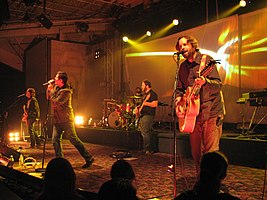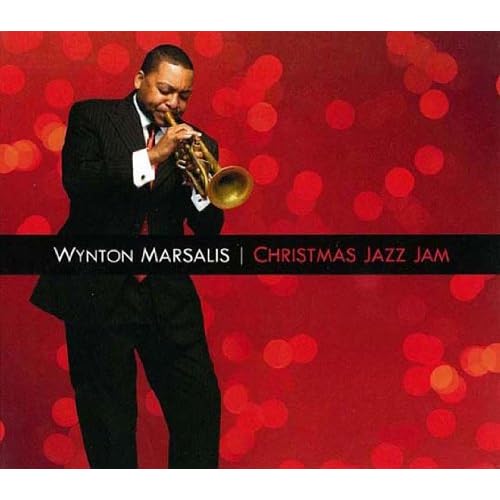
BAND BIO
Jars of Clay has sold more than six million albums, won three GRAMMYS, headlined thousands of sold-out shows and festivals, and successfully launched the Blood:Water Mission, a non-profit organization promoting clean blood and water in Africa. Since the band's debut single, "Flood," astonishingly topped both the mainstream and CCM charts, Jars of Clay has built an extraordinary career based on the uncompromising integrity of its music, worldview, and humanitarianism.
But the members of Jars of Clay – Dan Haseltine (vocals), Charlie Lowell (keyboards), Steve Mason (guitars), and Matt Odmark (guitars) -- have never been comfortable resting on their past achievements, choosing instead to constantly challenge themselves and each other to grow and evolve as musicians, as songwriters, and as a band. Jars of Clay's last album, Good Monsters, was a blistering rock manifesto that managed to reinvent the band's sound while tackling subjects as diverse and demanding as social responsibility, spiritual doubt and the duality of the human heart.
Now, three years later, Jars of Clay returns with an album of shimmering, state-of-the-art pop that's as sonically adventurous as it is sly and soulful: The Long Fall Back To Earth.
According to Charlie Lowell, The Long Fall Back To Earth picks up where Good Monsters left off: "Good Monsters was in many ways a view of humanity from 40,000 feet above the Earth. During that season, we were learning about what it means to live in community, rather than in isolation. And one of the things we've learned is that our spirituality is our relationships -- our day-to-day, up-close-and-personal, skin-to-skin relationships."
Dan Haseltine elaborates: "Over the past several years, we've been walking with different people who've been in crisis and had a real opportunity to see the inner workings of relationships struggling to survive. That's what inspired the theme of the new record: the idea of people made raw by their relationships, baring their souls to one another other, being broken and being rebuilt."
Matt Odmark: "For us, this record was an intentional transition away from writing conceptually. We wanted to make an album about the business of daily life written in the language of human interaction. An at-close-range exploration of our relationships and the way they shape and are shaped by our spirituality."
Produced by Jars of Clay with longtime collaborators, Mitch Dane (Bebo Norman, Caedmon's Call, Kyle Matthews) and Ron Aniello (Lifehouse, Barenaked Ladies, Guster), The Long Fall Back To Earth is a relationship record from beginning to end -- an unflinching, unabashedly intimate look at the way human beings try to connect, and more often than not fail to connect with each other. At the same time, however, The Long Fall Back To Earth is a non-stop, pure pop thrill ride from beginning to end, with gleaming hooks, irresistible choruses, and a retro-futuristic setting where acoustic guitars and 80's synth textures come together to create an entirely new sonic palette for the band.
The album's first single, "Two Hands," is a muscular, soulful strut that artfully builds on the duality theme from Good Monsters. Haseltine's lyrics observe, "I use one hand to pull you closer / The other to push you away," before going on to suggest that this internal conflict can be overcome with a simple, but profound course of action:
"Two hands doing the same thing / Lifted high." Like "Weapons," "Two Hands" works as both a song about human relationships and a call for social change.
Steve Mason agrees: "With ‘Two Hands,' there's a service aspect to the song, as well. When we reconcile the warring aspects inside us, we can bring the full weight of who we are into our relationships, our work, our families -- loving well, serving the poor, and making a difference."
Jars of Clay continues to make a difference through its non-profit Blood:Water Mission. As of now, the Blood:Water Mission has nearly completed its 1,000 Wells Project, providing clean water and sanitation to 1,000 communities in sub-Saharan Africa.
"The water side of Blood:Water feels like it's working," says Dan Haseltine. "So the blood side -- the HIV/AIDS side -- is where we're putting our focus this year. We're spending time in African communities to find out what's working for them as far as prevention and care for people with HIV and AIDS, and then doing what we can do to support them rather than imposing western models on them. It's a vast, broad approach, but it's exciting as there are so many more human stories to connect with."
That desire to connect is the primary theme of The Long Fall Back To Earth and nowhere is it more explicitly stated than in "Closer," the first song recorded for the record. With its Depeche Mode-inspired programming, playful vocal effects, and disarmingly forthright lyrics, "Closer" became the sonic template and lyrical point of departure for the record that grew out of it. When Haseltine sings "I'll drop out of the race for more personal space / ‘Cause the rockets we're in get so cold, and I miss your skin," he's never sounded more direct, unguarded, or more eloquently human. And the longing he's expressing is wedded to a pop song so deliriously melodic it features not one, but two separate choruses, each more ecstatic than the last.
One of the last songs written for the record is the ethereal, instrumental opener "The Long Fall," which gently introduces the theme of the record -- as well as its unique sound -- before giving way to the insistent, marching wake-up call of the song "Weapons." With its rousing, anthemic chorus, "Weapons" might at first seem to be a timely, straightforward plea for world peace. But the nuanced observations Haseltine makes in the verses suggest that the same human dynamics that cause wars are present in even the most intimate human relationships. Here -- and throughout the record -- the personal and the political are the same. "Weapons" is less a plea for peace than a joyous, defiant rallying cry: "There are no enemies in front of you"; a realization that has every bit as much relevance in love as it does in war.
The euphoric pop energy of "Weapons" illuminates the entire album, even the sweetly elegiac "Boys (Lesson One)," a techno-acoustic lullaby of lessons passed from father to son over an insistent electronic drum pattern that suggests these lessons can't be taught quickly enough -- time marches on and childhood ends too soon.
"Adults aren't calling children up into adulthood in a way where they can ask hard questions about what real life looks like," Steve Mason says. "Questions about the things that come along and break hearts and move them into adulthood. ‘Boys' captures the desire of a father to talk to his son in a way that doesn't lie about how hard living is. And it does it with love and a radical trust in the belief that God isn't afraid of our questions."
The song that follows, the searing rock anthem "Hero," has already been featured in NBC's promotional campaign for its blockbuster series, KINGS. Like "Weapons," "Hero" sounds at first like an earnest, impassioned plea for salvation. But in the context of an album about human relationships, "Hero" suggests that the most heroic thing we can do -- in fact, the only thing we can do "to save us from ourselves" is to connect with one another.
With The Long Fall Back To Earth, Jars of Clay has done just that, crafting a sophisticated pop record that goes out of its way to be revealing, honest, and vulnerable, inspiring everyone who hears it to pursue a deeper connection with the band and one another.
Go here to listen: http://astore.amazon.com/jarsofclay00-20
I love this band and sing a lot of their music myself. I know that you'll come to love them too. If you enjoy Christian Rock you can't find much better...
 GLO
GLO

 Purchase Music:
Purchase Music: 
 Musicians jamming with W.C. Handy (Memphis/Shelby Co. Public Library
Musicians jamming with W.C. Handy (Memphis/Shelby Co. Public Library GLO
GLO 























